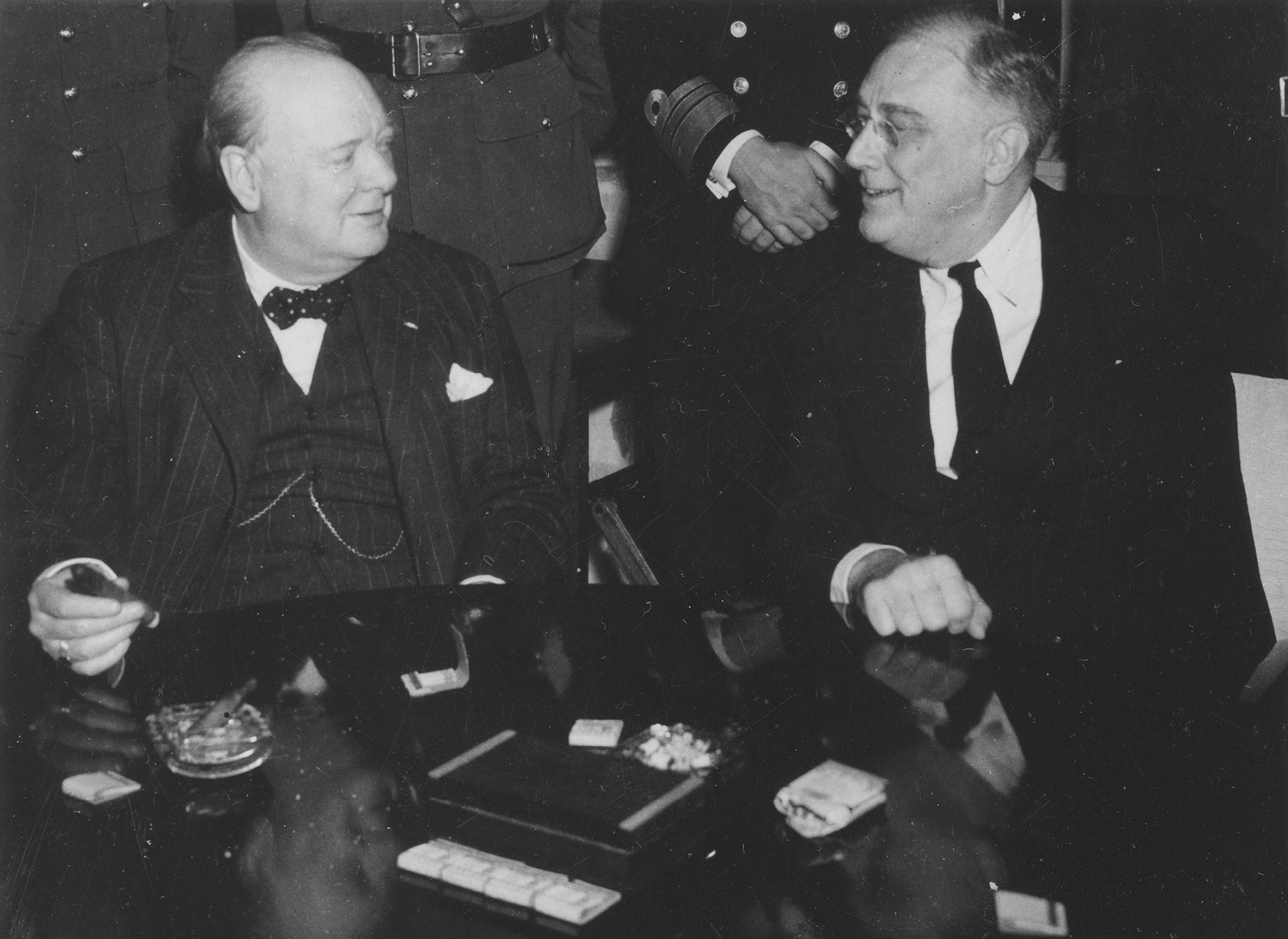Churchill, Roosevelt & Company
Also by Lewis E. Lehrman
Lincoln at Peoria: The Turning Point
Lincoln by littles
Money, Gold, and History
Churchill, Roosevelt & Company
Studies in Character and Statecraft
Lewis E. Lehrman
Stackpole
Books
Guilford, Connecticut
Published by Stackpole Books
An imprint of Globe Pequot
Distributed by
NATIONAL BOOK NETWORK
800-462-6420
Copyright 2017 Lewis E. Lehrman
All rights reserved . No part of this book may be reproduced in any form or by any electronic or mechanical means, including information storage and retrieval systems, without written permission from the publisher, except by a reviewer who may quote passages in a review.
British Library Cataloguing in Publication Information Available
Library of Congress Cataloging-in-Publication Data is available.
ISBN 978-0-8117-1898-1 (hardcover)
ISBN 978-0-8117-6547-3 (e-book)
 The paper used in this publication meets the minimum requirements of American National Standard for Information SciencesPermanence of Paper for Printed Library Materials, ANSI/NISO Z39.48-1992.
The paper used in this publication meets the minimum requirements of American National Standard for Information SciencesPermanence of Paper for Printed Library Materials, ANSI/NISO Z39.48-1992.
Printed in the United States of America
Always for Louise.
For Peter and Eve, Eliza and Filip, Thomas and Mara, John and Jenifer, Leland and Vera.
For my grandchildren: Sadie Louise, Caroline, Reed, Lawrence, Eleanor, Forest, James, Jasmine, Isabel, Rose, Peter Lewis, Berenika, Kestrel, and Cree.
Preface
At the onset of World War II, Anglophobia was commonplace among civilian and military leaders in Washington. Mutual distrust had resulted from decades of Anglo-American competition. Bad blood had followed World War I, not least because of Britains failure to pay its debts to the United States. In Britain, condescension prevailed among the British elite, toward the backward, self-centered, disorganized ways of the American government. Appeasement and isolationism characterized both countries. National and personal pride inhibited effective collaboration. Indeed, in Britain and America there existed a widely held opinion that Soviet Russia might prove an equally desirable partner. Some American leaders in Washington harbored a suspicion that sophisticated and experienced British leaders, such as Winston S. Churchill and John Maynard Keynes, might be a slippery bunch that would fleece America to keep the British Empire intact. The rules by which America gave critical Lend-Lease aid to Russia were for many reasons much looser than the very strict requirements imposed on Britain.
To defeat Nazi Germany and imperial Japan, the leaders of the United Kingdom and the United States had to overcome widespread distrust in the ranks. Within each government, jealousy among civilian departments and the military services was everywhere apparent. Churchill never doubted that he required the full support of the United States to defeat Adolf Hitler. President Franklin D. Roosevelt would become both a willing and a reluctant partner for Churchillwaiting until Pearl Harbor, nearly 18 months after the fall of France, to join Britain in war against the Nazis and Japan. During those months, FDR did establish the basis for U.S. military cooperation with Great Britain.
Winston Churchill and Franklin D. Roosevelt in Casablanca, January 1943.
FRANKLIN D. ROOSEVELT PRESIDENTIAL LIBRARY
Working under Churchill and Roosevelt were several tiers of military and civilian leaders, many of whom did embrace the team spirit needed by the Anglo-American alliance. On neither side of the Atlantic, however, was the team spirit pervasive. In Washington, Secretary of State Cordell Hull, Secretary of the Treasury Henry Morgenthau, and their subordinates, among others, shed their Anglophobia reluctantly. U.S. Army Chief of Staff George C. Marshall and Supreme Commander in Europe Dwight D. Eisenhower supervised many officers who made the alliance work, but others regularly impeded its effectiveness. Among the most important officials who usually aimed at cooperation were Harry Hopkins, Averell Harriman, Max Beaverbrook, and Anthony Eden. Scores of less prominent individuals played key roles critical to Anglo-American success.
The Soviet Union became an ally, but an altogether different kind of ally, as this book tries to make clear. Even as the Anglo-American alliance led to teamwork on civil and military matters, the British and the Americans would differ on postwar cooperation, trade and monetary policy, and policy toward the Soviet Union. Imperfect menthey were almost all menworked together, negotiated together, fought together, smoked together, ate and drank together. They shared their frustrations with their colleagues, their wives, and their diaries. President Roosevelt and the United States increasingly flexed their military and economic muscle, wounding British pride and undermining British political influence. American officials continued to impose on Britain economic and procedural restrictions that they did not impose on aid to Soviet Russia. Having failed to establish strict limits on their accommodation of Soviet aggression in the Baltic and Eastern Europe during the conflict, the Roosevelt and the Churchill administrations, and later the Truman administration, found it very hard to negotiate fairly and effectively with Moscow as the war came to a close. Huge Soviet armies occupied the territory of Central and Eastern Europe at wars end.
World War II concluded with FDR dead, Churchill out of office, and Joseph Stalin in control of virtually all Eastern Europe. Churchill, Roosevelt, and company had won the war in the West and in the Pacific, but the Soviet army had destroyed the bulk of the Nazi army in the East. With the development of Cold War tensions, the Anglo-American alliance would fail to win the peace.
Churchill, Roosevelt & Company is a book about some of the principal actors and events in the most massive global war of history.
* * *
This books purposes are strictly limited to exploring some of the diplomatic, political, war-making, and peacemaking efforts of Churchill, Roosevelt, and several of their key civilian and military teammates. This book does not pretend to be a history of World War II, nor a history of the peacemaking efforts. Instead, by rigorous selection from among the principals, it attempts to cast a singular spotlight on specific people, decisions, and events during this extraordinary war, narrowing the focus of what I have called Churchill, Roosevelt & Company .
The Historical Record
So I derive confidence that the will-power of the British nation, expressing itself through a stern, steadfast, unyielding House of Commons, once again will perform its liberating function and humbly exercise and execute a high purpose among men; and I say this with the more confidence because we are no longer a small Island lost in the Northern mists, but around us gather in proud array all the free nations of the British Empire, and this time from across the Atlantic Ocean the mighty Republic of the United States proclaims itself on our side, or at our side, or, at any rate, near our side.
Winston S. Churchill , speech to House of Commons, May 7, 1941.
We have faith that future generations will know that here, in the middle of the twentieth century, there came a time when men of good will found a way to unite, and produce, and fight to destroy the forces of ignorance, and intolerance, and slavery, and war.
Franklin D. Roosevelt , speech to White House Correspondents Association, Washington, D.C., February 12, 1943.
Next page
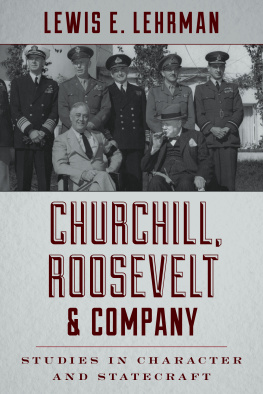

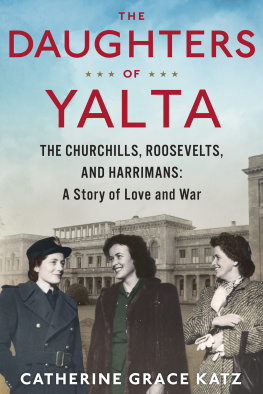


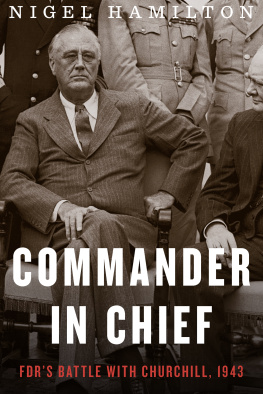
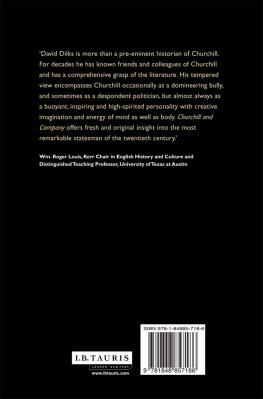
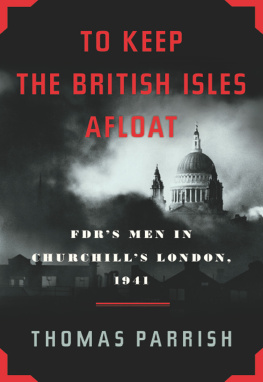
 The paper used in this publication meets the minimum requirements of American National Standard for Information SciencesPermanence of Paper for Printed Library Materials, ANSI/NISO Z39.48-1992.
The paper used in this publication meets the minimum requirements of American National Standard for Information SciencesPermanence of Paper for Printed Library Materials, ANSI/NISO Z39.48-1992.